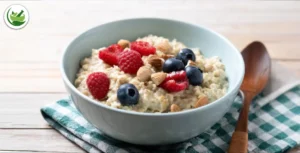
Remedy of headaches or migraines can be more than just a nuisance—they can significantly impact your daily life. While medications offer relief for many, there’s a growing interest in natural, homemade remedies that can provide comfort and aid in managing these conditions. If you’re seeking remedy of headaches or migraines, here are some effective homemade remedies you can try.
Related blog Homemade Remedies
1. Stay Hydrated: Simple Yet Effective
Dehydration is a common trigger for headaches. Ensuring you drink enough water throughout the day can help prevent and alleviate headaches. Aim to drink at least eight 8-ounce glasses of water daily. If a headache strikes, sipping a large glass of water can often provide immediate relief. For added benefits, you might infuse your water with slices of cucumber or lemon, which can make hydration more enjoyable and refreshing.
2. Peppermint Oil: Soothing Relief
Peppermint oil is a powerful remedy for tension headaches. Its menthol content can help relax muscles and improve blood circulation. To use peppermint oil, dilute a few drops with a carrier oil like coconut or olive oil. Gently massage the mixture into your temples and the back of your neck. The cooling sensation can provide soothing relief and help reduce headache symptoms.
3. Lavender Oil: Relax and Relieve
Lavender oil is known for its calming and relaxing properties, which can be particularly helpful for migraine relief. To use lavender oil, add a few drops to an essential oil diffuser or place a few drops on a tissue and inhale deeply. You can also add lavender oil to a warm bath for an overall relaxing experience. This can help reduce stress and promote relaxation, potentially easing the intensity of migraines.
4. Warm or Cold Compress: Comforting Solutions
Applying a warm or cold compress can offer significant relief from headaches and migraines. For tension headaches, a warm compress placed on the neck or shoulders can help relax tight muscles. For migraines, a cold compress applied to the forehead or the back of the neck may reduce inflammation and numb the pain. You can use a heating pad or a bag of frozen vegetables wrapped in a towel for this purpose.
5. Ginger Tea: Natural Anti-Inflammatory
Ginger is well-known for its anti-inflammatory properties, which can be beneficial for headache relief. To make ginger tea, peel and slice a small piece of fresh ginger, then steep it in hot water for about 10 minutes. Strain the tea and enjoy it warm. Adding honey or lemon can enhance the flavor and add additional soothing effects. Ginger tea can also help with nausea that often accompanies migraines.
6. Magnesium: Nutrient Power
Magnesium plays a crucial role in headache prevention and relief. A deficiency in magnesium can trigger headaches and migraines. Incorporate magnesium-rich foods into your diet, such as almonds, spinach, and bananas. For a quick boost, you can also take a magnesium supplement, but it’s always best to consult with a healthcare provider before starting any new supplement.
7. Proper Sleep: Essential for Relief
Inadequate sleep is a common headache trigger. Establishing a regular sleep routine and ensuring you get 7-9 hours of quality sleep each night can significantly reduce headache frequency and severity. Create a calming bedtime routine, avoid screens before bed, and maintain a comfortable sleep environment to improve your overall sleep quality.
8. Acupressure: Targeted Relief
Acupressure can be an effective way to alleviate headache pain by applying pressure to specific points on the body. One commonly used point for headache relief is the “LI4” point, located between the thumb and index finger. Apply firm pressure to this area for a few minutes. Other pressure points on the neck and shoulders can also provide relief. This technique helps release muscle tension and improve circulation.
9. Yoga and Stretching: Ease Tension
Regular yoga and stretching can help manage tension headaches caused by muscle strain. Incorporating simple stretches for the neck, shoulders, and upper back into your routine can relieve muscle tightness. Practices like yoga or tai chi can also promote relaxation and reduce stress, which is often a trigger for headaches and migraines.
10. Healthy Diet: Avoid Triggers
Certain foods and drinks can exacerbate headaches and migraines. Keeping a food diary can help you identify and avoid your personal triggers. Common triggers include processed foods, caffeine, and alcohol. Focus on a balanced diet with plenty of fresh fruits, vegetables, whole grains, and lean proteins to support overall health and potentially reduce headache frequency.
Related blog Homemade remedies for a cough
Conclusion
Homemade remedy of headaches or migraines can provide effective relief and are often gentler on your body compared to medications. However, if you experience severe, frequent, or debilitating headaches, it’s important to consult with a healthcare professional to identify underlying causes and appropriate treatments. Integrating these natural remedies into your routine may help you manage and reduce the impact of headaches and migraines on your daily life.






